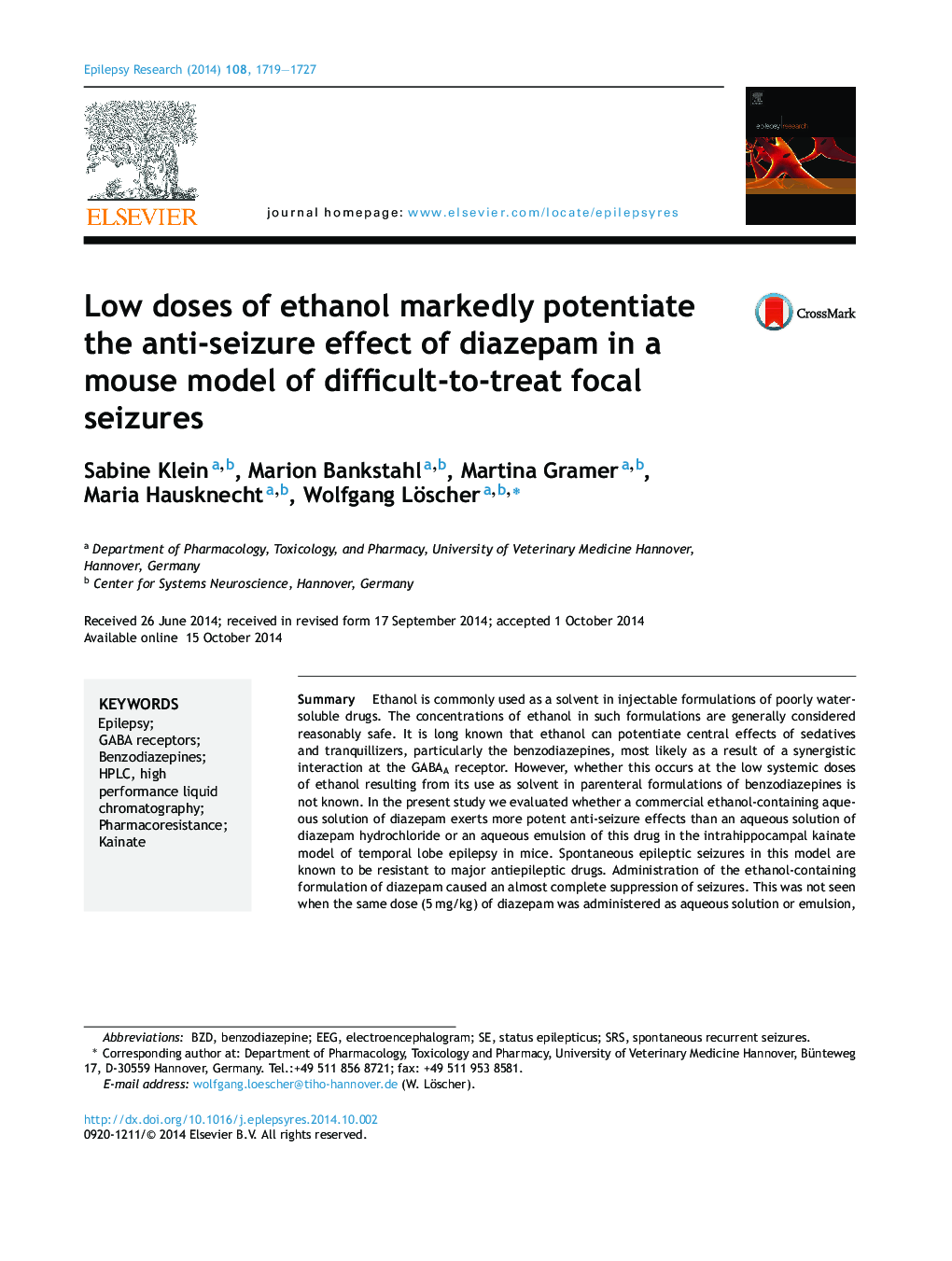| Article ID | Journal | Published Year | Pages | File Type |
|---|---|---|---|---|
| 6015502 | Epilepsy Research | 2014 | 9 Pages |
Abstract
Ethanol is commonly used as a solvent in injectable formulations of poorly water-soluble drugs. The concentrations of ethanol in such formulations are generally considered reasonably safe. It is long known that ethanol can potentiate central effects of sedatives and tranquillizers, particularly the benzodiazepines, most likely as a result of a synergistic interaction at the GABAA receptor. However, whether this occurs at the low systemic doses of ethanol resulting from its use as solvent in parenteral formulations of benzodiazepines is not known. In the present study we evaluated whether a commercial ethanol-containing aqueous solution of diazepam exerts more potent anti-seizure effects than an aqueous solution of diazepam hydrochloride or an aqueous emulsion of this drug in the intrahippocampal kainate model of temporal lobe epilepsy in mice. Spontaneous epileptic seizures in this model are known to be resistant to major antiepileptic drugs. Administration of the ethanol-containing formulation of diazepam caused an almost complete suppression of seizures. This was not seen when the same dose (5Â mg/kg) of diazepam was administered as aqueous solution or emulsion, although all three diazepam formulations resulted in similar drug and metabolite concentrations in plasma. Our data demonstrate that ethanol-containing solutions of diazepam are superior to block difficult-to-treat seizures to other formulations of diazepam. To our knowledge, this has not been demonstrated before and, if this finding can be translated to humans, may have important consequences for emergency treatment of acute seizures, series of seizures, and initial treatment of status epilepticus in patients.
Keywords
Related Topics
Life Sciences
Neuroscience
Neurology
Authors
Sabine Klein, Marion Bankstahl, Martina Gramer, Maria Hausknecht, Wolfgang Löscher,
